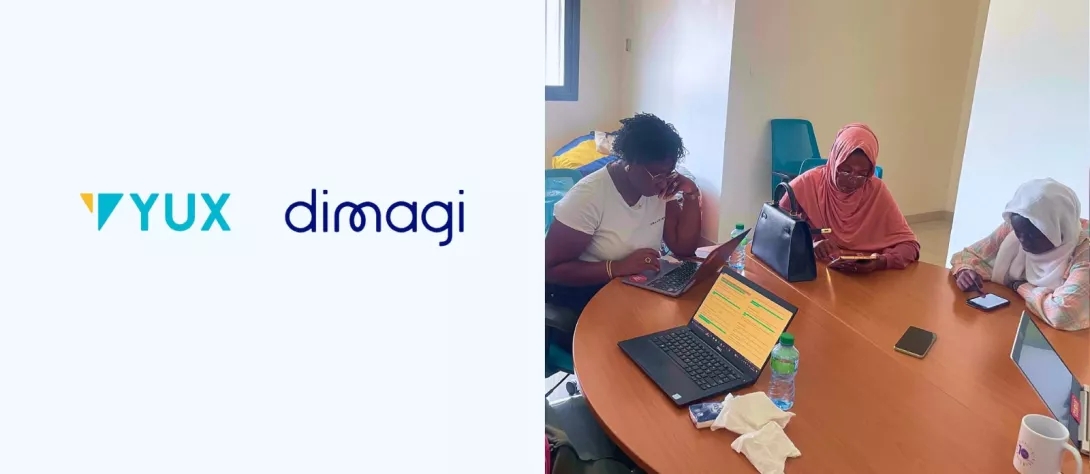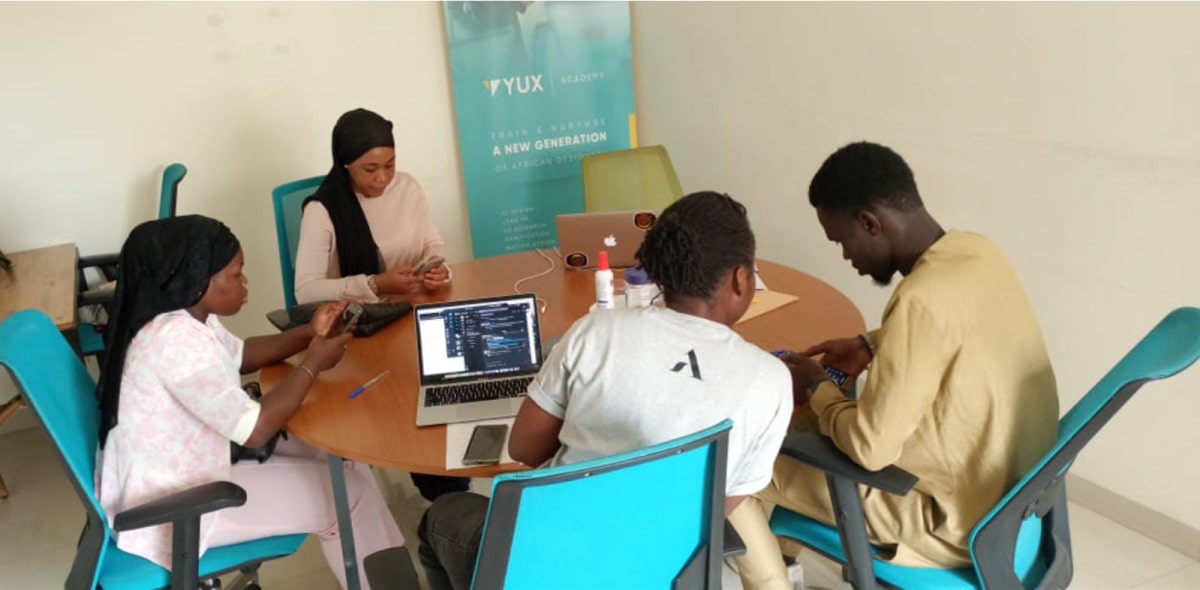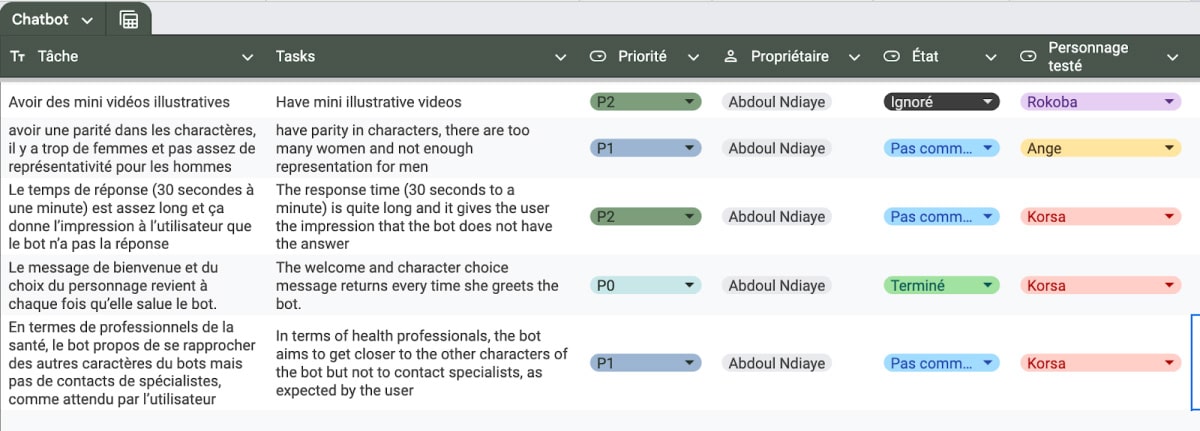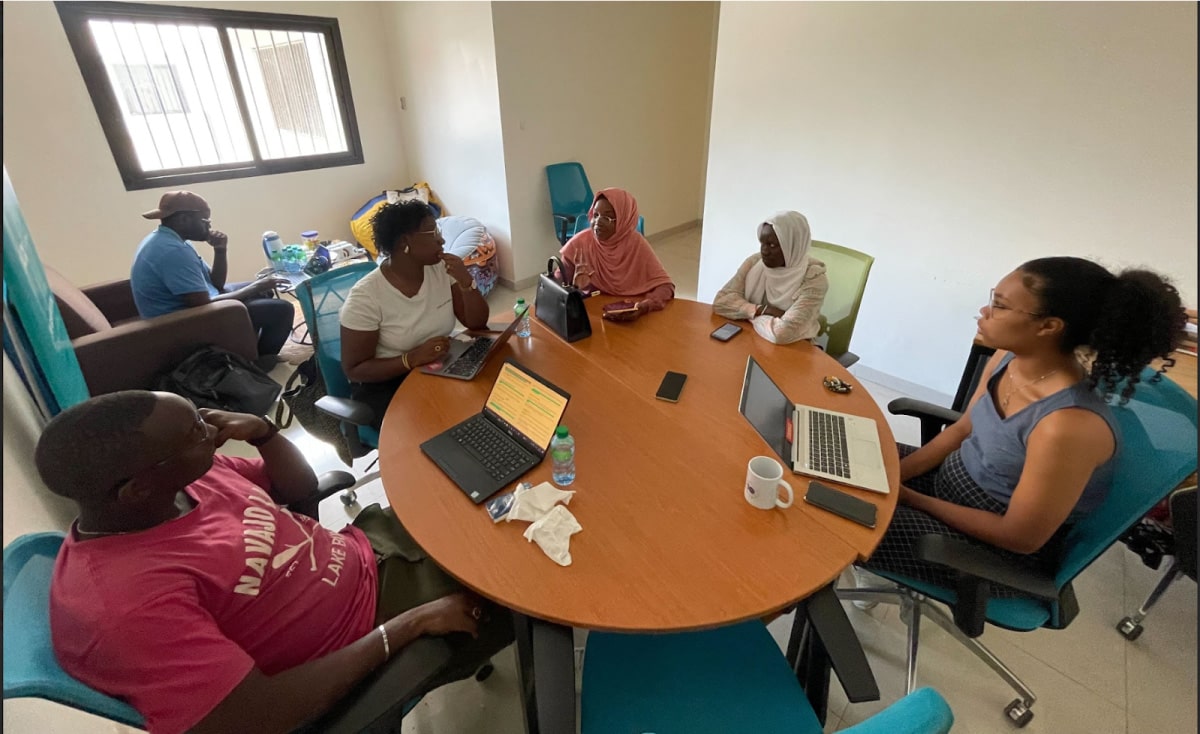
Introduction
Last month, we embarked on a project with our friends at Dimagi, RAES, UCAD and the Gates Foundation with the goal to build a safe and locally relevant Generative AI for Reproductive Health. Our designers and researchers are super excited because it’s a pioneering endeavor aimed at leveraging artificial intelligence to enhance reproductive health practices in West Africa. We’ll write a series of articles on the design and testing approach we are adopting and our learnings. In this first piece we’ll present an overview of the project's objectives, the research methodology, and initial findings.

Where is starts: a TV show named “C’est la vie”
"C’est la vie ! is a project that enables young people to learn about their health through entertainment. It includes a TV series with 4 seasons, a web series, a radio soap opera, and community activities. The C’est la vie! ecosystem now boasts a digital community of 430,000 followers on Facebook, 40,000 on Instagram, 230,000 on YouTube, and 15,000 on TikTok. On digital platforms, C’est la vie! has managed to create safe spaces for young people, where they can freely seek information and express themselves."
How do you go about creating, testing and scaling a Gen AI for health, adapted to Africa?
The primary goal of this project is to develop a chatbot accessible via Telegram, Whatsapp and other platforms, capable of effecting behavioral change related to reproductive health among young adults by facilitating access to information and connecting young people with various healthcare providers. By focusing on co-design and iterative development, our work seeks to create a chatbot that is not only technically sound and safe, but also deeply resonates with its intended audience. Specifically, the project aims to:
Design and Develop Chatbot Prototypes: Through iterative co-design sessions, create chatbot prototypes tailored to the specific needs and preferences of young adults in Senegal, Côte d'Ivoire, and Burkina Faso.
Evaluate and Refine Chatbot Performance: Conduct rigorous testing to identify and address any limitations or shortcomings in the chatbot's design and functionality.
Assess Chatbot Efficacy: Evaluate the chatbot's impact on users' knowledge, attitudes, and behaviors related to reproductive health through a randomized controlled trial at a large scale.
A continuous design research approach
As the design partner, we’re leading the first aim on the co-creation and early testing of the chatbot. We ensure that the chatbot is developed with a deep understanding of the target users' needs, preferences, and behaviors. By applying a user-centric and creative approach, we help to create a chatbot that is not only functional but also engaging, empathetic, and culturally relevant.
To do so - we are adopting the following continuous research approach:
Facilitating a series of 24 co-design sessions with young adults - over 3 to 4 months - here we’ll employ various engagement techniques like role plays, guides discussions, prototypes testing, etc.
Analyzing user feedback on the go to inform iterative design changes to Dimagi and RAES, the partners feeding the LLMs and improving the GenAI responses
Documenting the design process and outcomes for the partners who will lead the following research phases and other organisations willing to build Gen AI adapted to the African context

An example of the way we present the feedback from the co-creation & testing sessions
Early Findings and Implications
Initial findings from the co-design sessions highlight the importance of:
Cultural relevance: Tailoring the chatbot's language, content, and characters to resonate with the target audience.
Empathy and personalization: Designing the chatbot to provide empathetic and personalized support, notably by using Personas that are created based on RAES successful TV Show “C’est la vie”
Iterative development: Continuously refining the chatbot based on user feedback - this approach or doing ongoing research and improvement is quite new in the “UX for NGO” world and takes on an all new importance with the rise of Gen AI.

Implications for Future Research and the Potential of Gen AI in Africa
We believe in the tremendous potential of generative AI to address critical public health challenges in Africa. While this project is demonstrating the feasibility of developing a chatbot-based intervention for reproductive health, several avenues for future research remain to be explored.
Scalability and Sustainability: The project's success hinges on its ability to be scaled up to reach a broader population. Future research should investigate strategies for ensuring the sustainability of chatbot-based interventions, including cost-effectiveness analysis, integration into existing health systems, and long-term impact assessment.
Cultural Adaptation: While the Chatbots for Reproductive Health project focused on a specific region, the cultural context of different African countries can vary significantly. Future research should explore how chatbot-based interventions can be effectively adapted to diverse cultural settings, ensuring their relevance and acceptability across the continent.
Data Privacy and Security: The use of AI in healthcare raises concerns about data privacy and security. Future research should develop robust data protection measures to safeguard user information and prevent unauthorized access.
Ethical Considerations: The deployment of AI in healthcare requires careful consideration of ethical implications, such as bias, transparency, and accountability. Future research should address these ethical challenges and develop guidelines for responsible AI development and use.
Realizing the full potential of Gen AI in Africa will require significant investment in research, infrastructure, and capacity building. It is essential to foster collaboration between researchers, policymakers, and industry leaders to ensure that AI is developed and deployed in a way that benefits all Africans.
In terms of user research not much has been written yet about the relevant approach to testing and co-creating relevant Gen Ai experience. That’s why you can expect more from us soon on this fascinating project !
